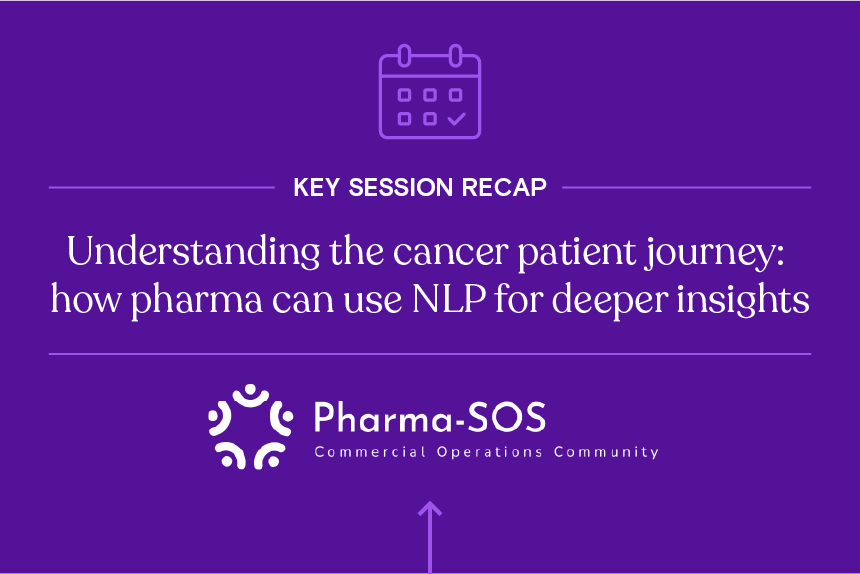Since December 2024, Google, OpenAI, and Perplexity have all announced the implementation of “deep research” (sometimes written as “Deep Research”) systems within their artificial intelligence (AI) products.
Likewise, in February, Microsoft said it was giving all of its Copilot AI users access to the similarly named “Think Deeper” feature.
If you’ve spent enough time in the tech world, you probably have some healthy suspicion toward marketing terminology that implies—but doesn’t specifically describe—novel capabilities, especially when it comes to AI. In fact, a study from Washington State University found that including terms like “AI” in product descriptions can hinder sales.
So what is “deep research,” really: A revolutionary new feature, a simple re-branding, or something in between? And what does it mean for healthcare, where AI and machine learning are already being used to discover new therapies, diagnose patients faster, and recommend treatment plans? Let’s take a look.
What is deep research?
Here’s how OpenAI describes deep research:
“Deep research is a specialized AI capability designed to perform in-depth, multi-step research using data on the public web. It’s fine-tuned on the upcoming OpenAI o3 reasoning model and can autonomously search for and read information from diverse online sources. This enables it to create thorough, documented, and clearly cited reports on complex topics.”
OpenAI and Perplexity describe their deep research features in similar terms. Microsoft says its Think Deeper is also designed to perform multi-step inquiries and report on complex concepts, but it leverages OpenAI’s o1 model rather than o3.
In essence, deep research is a report generation system that uses large language models (LLM) to decompose and process a user query, synthesize multiple search results, and produce a detailed report on its findings.
Don’t confuse deep research with “deep learning.” Although both technologies are complementary, the outputs differ. Deep research describes the process of breaking down a user query into multiple LLM calls, while deep learning entails training those learning models using multiple computational layers and unstructured data.
How is deep research used in healthcare?
Deep research has the potential to streamline a variety of functions across the healthcare landscape, from patient care to pharmaceutical development and facility operations. Here are some key areas where deep research may deliver the most value:
Precision medicine and personalized treatment
Deep research could be used to drive advancements in precision medicine, particularly in genomics and biotechnology. By analyzing vast amounts of genetic, environmental, and lifestyle data, deep research tools could help researchers develop highly personalized treatment plans tailored to a patient’s specific physiology in a fraction of the time it would take with traditional reporting tools.
Already, deep learning models have been used to analyze clinically actionable data from pathology slides and test results, enabling pathologists and geneticists to diagnose disease, forecast mutations, and predict drug responses more accurately. Deep research could make it easier to meta-analyze and report on trends assessed by these learning models.
Drug discovery and development
The process of developing new drugs is ponderous and expensive, but machine learning technologies like deep research are helping to accelerate the timeline and reduce costs. By leveraging AI, massive datasets, and molecular modeling, researchers can identify potential drug candidates much faster than with traditional methods.
The rapid development of COVID-19 vaccines, for instance, was facilitated with machine learning models. Life science companies could use deep research tools to identify new therapies, compare probable impacts on various patient cohorts, and then report those findings to key organizational stakeholders.
Operational efficiency in healthcare facilities and systems
Beyond patient care, deep research could improve the way healthcare organizations operate. By analyzing hospital data, deep research tools can help providers identify bottlenecks and demand trends, then present optimization options to improve patient flow, reduce wait times, and improve resource allocation.
Some hospitals are already using predictive analytics—another AI-powered technology—to find patients who are likely to be readmitted and anticipate influxes that could require additional staffing, supplies, or beds. For facilities that don’t already have these technologies integrated in their electronic health records, deep research tools could be used with their existing datasets to perform similar tasks.
Public health and epidemiology
AI plays a crucial role in public health by helping researchers identify disease patterns and predict outbreaks using real-world evidence. With the advanced data modeling and reporting capabilities of deep research technologies, researchers can track the spread of infectious disease, issue early warnings, and implement more effective intervention strategies.
Furthermore, deep research gives laypeople the ability to analyze and understand large healthcare datasets and public health trends, without relying on the expertise of a public health professional to perform research and synthesize a report. (It’s worth noting that large language models still hallucinate from time to time, and it never hurts to cross-reference an AI-generated report with findings from the larger healthcare community.)
Is the deep research revolution here?
While deep research is undeniably useful, exciting, and certainly more than mere marketing jargon, it’s not a night-and-day departure from existing machine learning and generative AI tools—it’s simply a more thorough approach that leverages additional layers of computational complexity to output more “thoughtful” analyses.
For researchers, drug developers, providers, and administrators, this could make critical healthcare functions easier, less time-consuming, and less expensive to perform. It also helps equip everyday people with knowledge they might not otherwise have access to.
But deep research represents only a portion of AI’s value in healthcare. Definitive Healthcare uses machine learning and robust datasets to power our predictive analytics and market and consumer intelligence solutions. Sign up for a free trial today to learn more.





